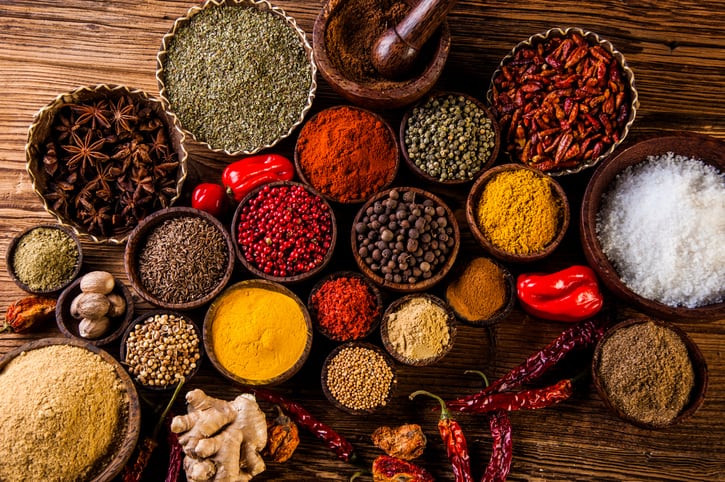The history of Indian restaurants in the UK can be traced back to the short-lived Hindostanee Coffee House in London’s Westminster, a first of its kind on these shores that traded from 1810 to 1812. Yet it wouldn’t be for another 150 years before the Indian restaurant scene as we know it today properly took off when mass migration from India, Bangladesh, and Pakistan to Britain in the 1960s and 70s led to established South Asian communities and a need to feed them.
Exact figures on how many Indian restaurants there are currently in the UK are hard to find. By the mid-1980s there were thought to be 3,500 Indian restaurants, a number which rose to a high of around 12,000 by 2015 but which has since shrunk to around the 8,000 mark (going by 2023 figures). The vast majority of these restaurants are independently run, and it wasn’t until around 20 years ago that groups of Indian restaurants started to form.
Arguably the most influential of these – although by no means the first – is Dishoom. Opened in 2010 the group, which is inspired by the all-day cafés of Bombay, created a new aesthetic for the Indian restaurant sector, seeing Indian design and culture through a fresh lens. Dishoom’s all-day approach, including offering a breakfast menu, has also helped change perceptions among a Western consumer that Indian food is more than something you eat at dinner only.
Other major players in the sector include Mowgli, the Nisha Katona founded group, which now has 26 sites - the biggest footprint in the casual dining Indian sector - and street food brand Chaiiwala, which is approaching 100 sites in the UK.
Within this list we have also included Sri Lankan restaurants, which have risen to prominence in the capital over the past decade thanks to the likes of Hoppers, owned by JKS Restaurants, and Kolamba. But for every success story there have been casualties, with the seven-strong Sri Lankan casual dining brand The Coconut Tree having been wound up this month after defaulting on its company voluntary arrangement.
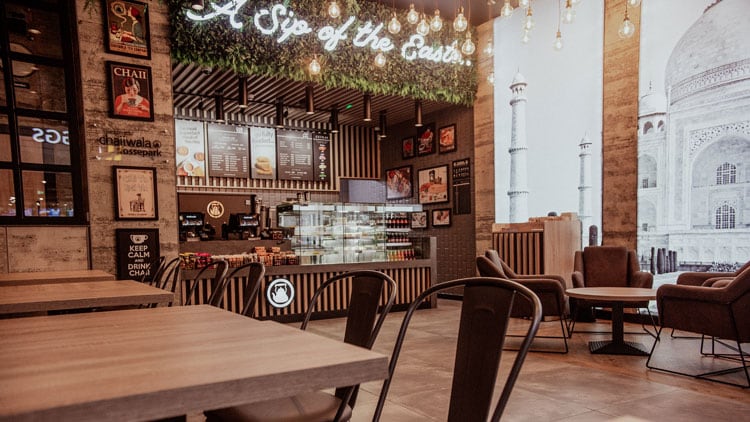
Chaiiwala
Founded: 2016
Sites: 89
While its history dates bac more than 100 years, the Chaiiwala as we know today launched in Leicester in 2016 to make chai and Indian street food more widely available. The company is working towards its aim with the opening of more than 110 stores internationally over the past eight or so years and plans for many more sites. The brand has signed a deal with EG Group to substantially expand its drive-thru estate over the next three years having opened its second drive thru site outside Blackburn, in Mellorbrook, in July 2024 and aims to reach the 400-500-site mark in the UK in the coming years, according to co-founder Sohail Ali. It also operates an airport site at London Luton Airport and is targeting major travel hubs as part of its expansion. In January 2025 the brand said it was actively seeking franchise partners amid plans to expand to 500 sites internationally with a focus on the US, Canada, and the Middle East. It has subsequently expanded to Canada, where it now has 18 locations; and Dubai, where it has three restaurants. The group operates a number of formats including high street locations, small kiosks, drive-thru restaurants and retail park units.
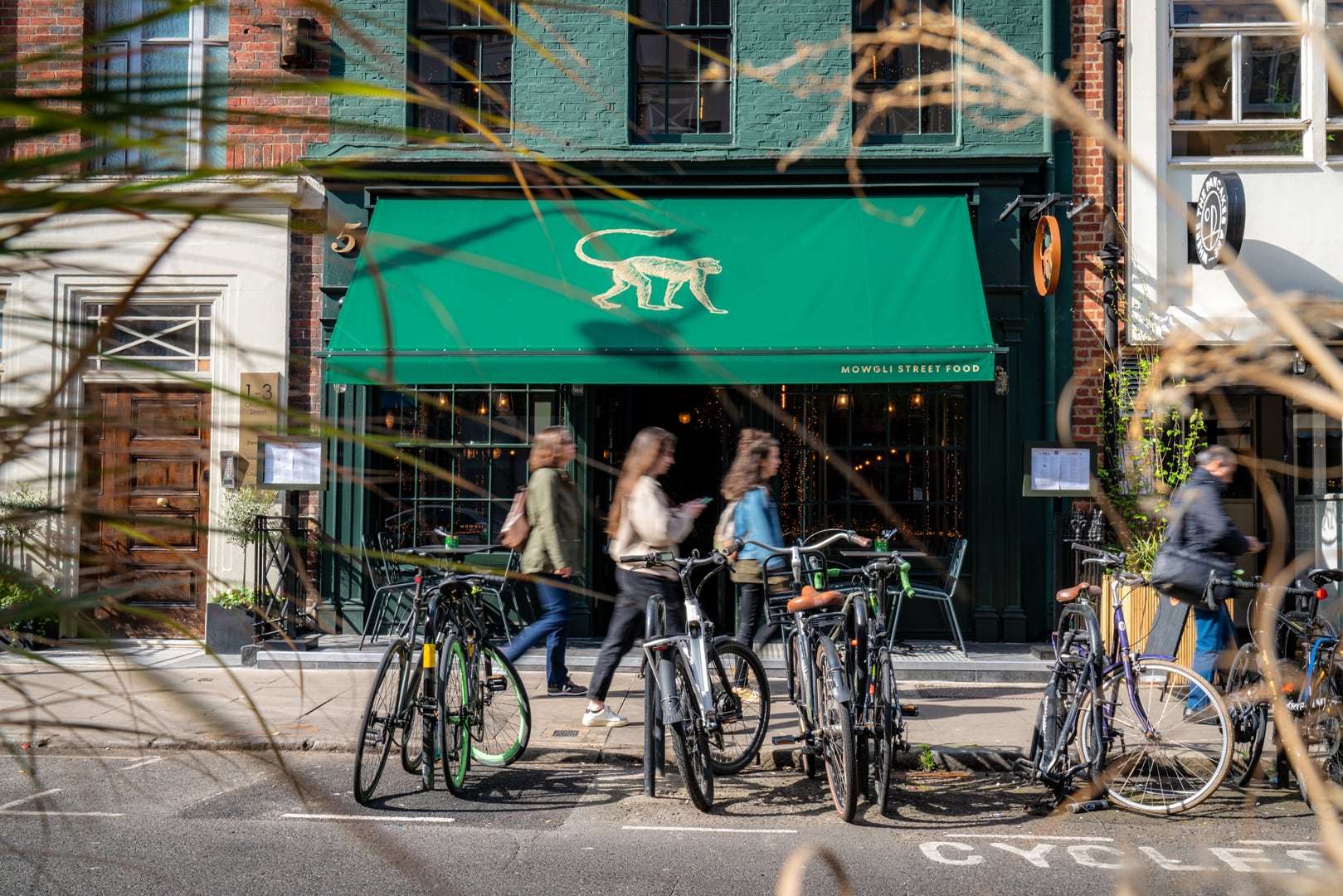
Mowgli
Founded: 2014
Number of sites: 26
Another Indian restaurant success story, Mowgli was founded in Liverpool by former barrister Nisha Katona and has since expanded steadily across the country. The Indian street food brand established itself in the regions before eventually taking the plunge and opening its first restaurant in the capital, on Fitzrovia’s Charlotte Street, in October 2021. In early 2023 private equity firm TriSpan acquired a stake in the business, with its existing investor Foresight exiting, and in March 2025 TriSpan revealed plans to bring Mowgli together with its Pho and Rosa’s Thai brands under new holding group Arcturus Group, as part of its Rising Stars fund, which invests in emerging restaurant brands that are poised for significant growth. Mowgli currently operates 26 venues, and new restaurants will open in Norwich in August and also Belfast in the summer. In June 2025, Katona stepped back from her role as CEO, promoting Mowgli’s chief operating officer Lucy Worth to the position.
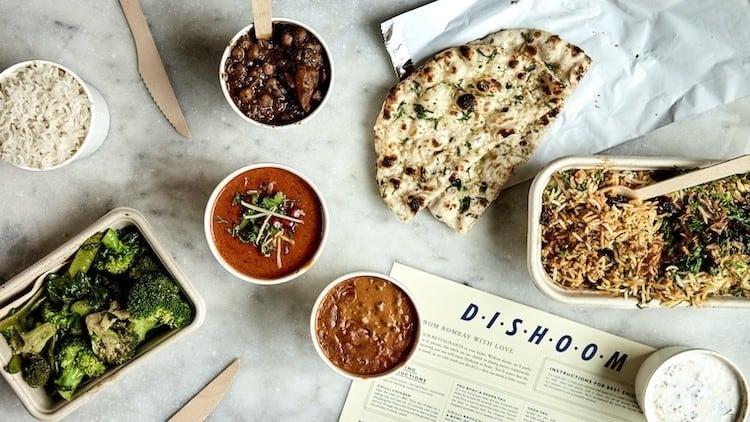
Dishoom
Founded: 2010
Number of sites: 10
One of the great restaurant success stories of the past decade, Dishoom operates 10 venues across the country, seven in London and one each in Birmingham, Edinburgh and Manchester (it also operates sister brand Permit Room, see below). Using the cafes of Bombay as its inspiration, the brand is known for creating beautiful restaurants, each of which have their own identity, and which tell their own story. Launched by co-founders Shamil and Kavi Thakrar, along with Amar and Adarsh Radia, who both left the business in 2017, the business is now led by long-time employee and CEO Brian Trollip. The company has bold expansion plans: as well as new sites planned for Leeds and Glasgow it is looking to make the move across The Pond with a site in New York and is understood to be close to securing a site there. In November 2024 the company was certified as B Corp and reported a 23% increase in revenue to £116.8m and growth in EBITDA, up 41.9% to £13.3m, in the 12-month period to 31 December 2023.
Akbar’s
Founded: 1995
Number of sites: 10
Akbar’s was founded by Shabir Hussain, a chef and restaurateur known affectionately as the ‘king of curry’ and has grown from a small 28-seat restaurant in Bradford to a curry empire with double-figure sites. The group later expanded to open restaurants in Leeds, Rotherham, Middlesborough, Sheffield, Manchester, Newcastle, Glasgow, and Birmingham and its latest restaurant opened in Blackburn in 2024. Hussain lost his fight with cancer in 2024 at the age of 56 but the group continues to flourish and now employs 67 chefs and 329 staff across its 10 venues.
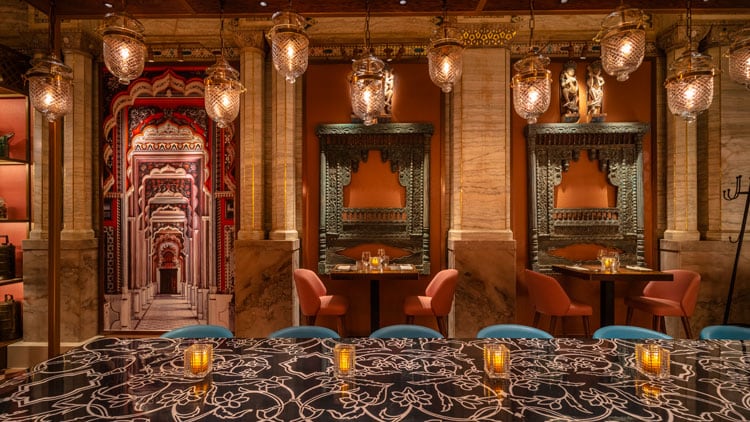
MW Eat
Founded: 1990
Number of sites: 7 (four Masala Zones and three fine dining restaurants)
MW Eat is the OG contemporary Indian group in the UK having launched the first restaurant in London - quite possibly the world - to make the argument that Indian food could be elevated and served in a manner that was both upmarket and creative. The success of Chutney Mary - which is currently celebrating its 35th birthday - paved the way for founders Ranjit Mathrani, Namita Panjabi and Camellia Panjabi to launch two further Indian fine dining restaurants - the Michelin-starred Veerswamay and Amaya - and the more casual Masala Zone chain. The latter was close to hitting double figures a decade or so ago but its presence in the capital has been scaled back in recent years to a total of four restaurants (three in central London and further site in Earls Court). The newest of these - launched in 2023 - is the group’s most ambitious restaurant to date. Masala Zone Piccadilly Circus is located in the former Criterion Restaurant and demonstrates that the trio aren’t running out of ideas with its spectacular interoir design that’s packed full of colour and interest. MW Eat’s impact on the wider Indian restaurant scene cannot be overtstated. The trio have inspired countless other forward-thinking Indian restaurants, from The Cinnamon Club and Gymkhana right through to Dishoom and Mowgli.
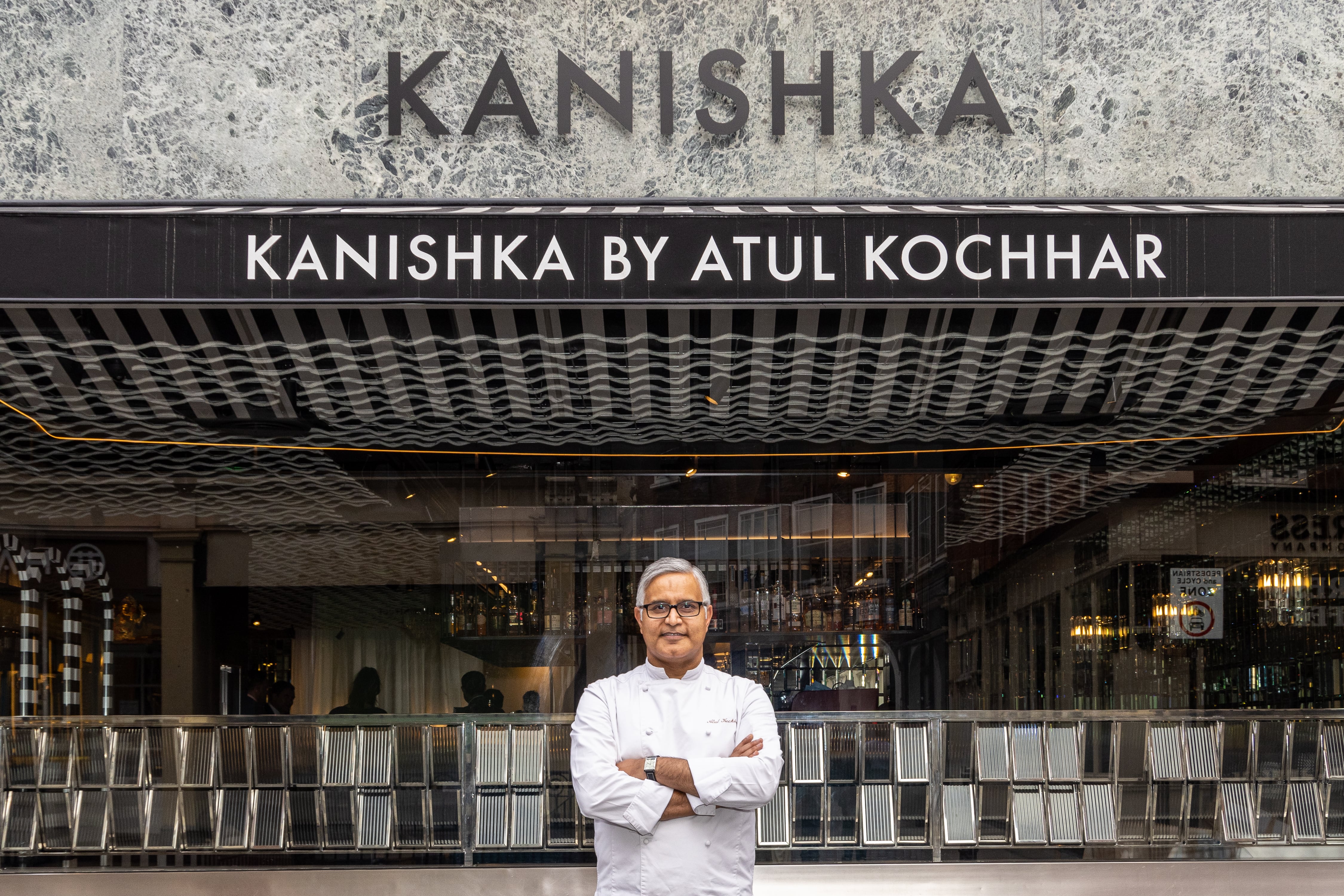
Atul Kochhar Restaurants
Founded: 2012
Number of sites: 7
Atul Kochhar has had a presence in Mayfair for more than 20 years, first at Benares, which he left in 2018 and later at Kanishka, which he opened a year later and which he still operates today. The chef has built a wide portfolio of restaurants in London and the south east, with two restaurants in Marlow – Sindhu and Vaasu – and two in Kent – Essence and Indian Essence, the latter opening in 2012. In addition, he runs Riwaz in Beaconsfield, which is said to showcase cooking from the rustic states of Bihar, Jharkhand, Uttar Pradesh, Punjab, Tamil Nadu, West Bengali, and Orissa, and Masalchi, a more casual Indian street food concept in Wembley Park.
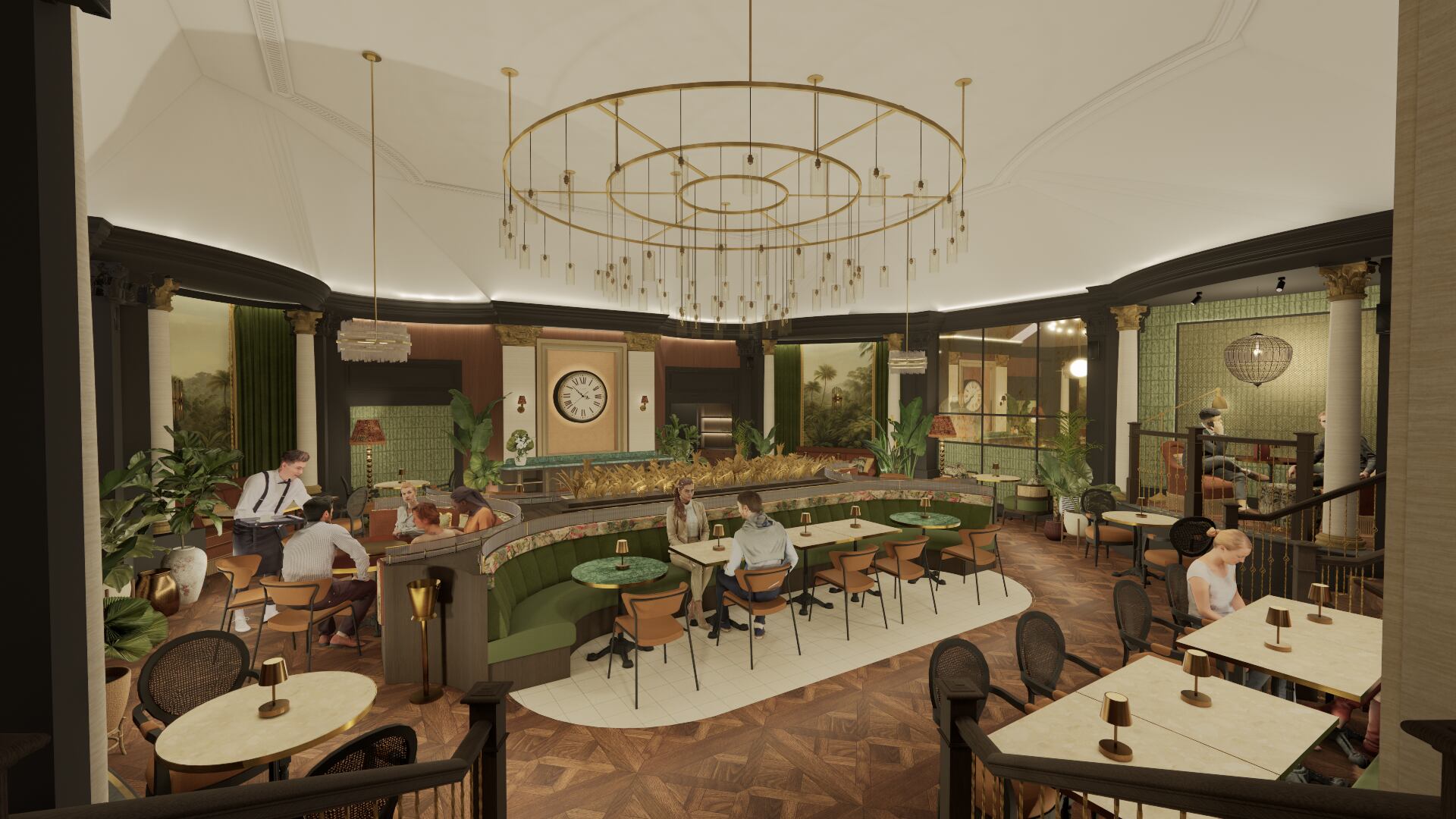
Cinnamon Collection
Founded: 2001
Number of sites: 6
Contemporary Indian restaurant group Cinnamon Collection operates a number of Indian brands, including Cinnamon Kitchen in London – in the City and Battersea - and Leeds, Cinnamon Bazaar in Covent Garden and Richmond, and cocktail bar Anise. Its flagship restaurant is The Cinnamon Club, led by chef-patron Vivek Singh and located in the historic Grade II listed former Westminster Library. Singh who is executive chef and CEO at Cinnamon Collection, was among the first wave of chefs to open high-end Indian fine dining restaurants in the capital. The Cinnamon Collection is now part of Boparan Restaurant Group, which also owns Slim Chickens, Gourmet Burger Kitchen and Ed’s Easy Diner.
Tap & Tandoor
Founded: 2018
Number of sites: 5
Indian gastropub Tap & Tandoor is predominantly southern based, with sites in Bournemouth, Portsmouth, Southampton and Peterborough although it started life in Solihull in in the West Midlands in 2018 when it took over the former Saddlers Arms pub. Peterborough opened a year later, followed by the Southampton site in 2022, and Portsmouth in 2024. Its latest addition, in Bournemouth, opened in 2025 with the addition of darts and shuffleboard to create more of a pub feel (the venues also show live sports). The brand also runs quiz nights at some of its restaurants and offers a Sunday lunch.
Dawat group
Founded: 2002
Number of sites: 5
This Pakistani and Indian restaurant group has its flagship site in Tooting but also operates in Norbury, Mitchum, Paddington and Chiswick. A further site, located in Selsdon, south Croydon, is due to open soon. The restaurant started under the name Laziza in Tooting in 2002, but high demand led it to move to larger premises and change its name to Dawat in 2009. In 2014 the restaurant relocated once again to meet further demand followed by its second site, in Norbury, in 2020. Restaurants in Mitchum and Chiswick opened in 2024 and 2025 respectively. The company also operates an events catering business in Pakistan, which opened in 2019. Its Paddington restaurant is the company’s first franchise site, and the company is looking to offer further franchise opportunities to fuel its expansion.
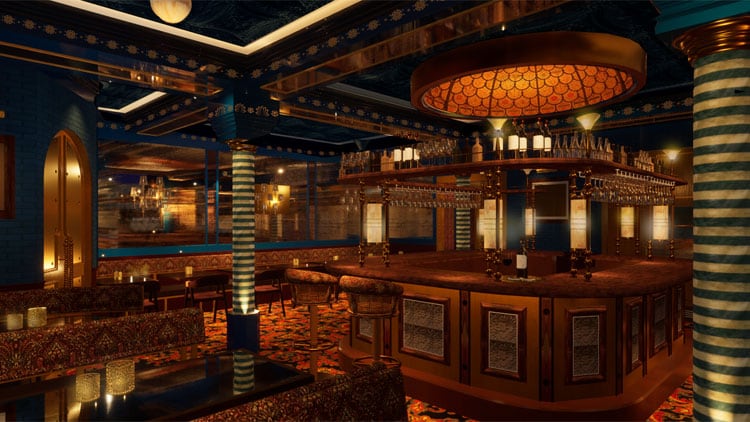
JKS Restaurants (Indian restaurants)
Founded: 2008
Number of sites: 5
Run by siblings Jyotin Sethi, Karam Sethi and Sunaina Gokani, London-based JKS operates a number of restaurant and pub brands as well as five high-end fine dining Indian restaurants in the capital – Trishna, BiBi, the two Michelin-starred Gymkhana (one of only two double-starred Indian restaurants in the UK) Brigadiers, and its most recent brand Punjabi restaurant Ambassadors Clubhouse (pictured), which opened in Mayfair in autumn 2024. The company also has an international presence for a number of its brands, including its Indian restaurant ones. It operates a Gymkhana in the Saudi capital Riyadh and is due to open a 7,900sq ft restaurant at 1245 Broadway, a 23-storey building in Manhattan, which is understood to be under one of its Indian restaurant brands.
Aagrah
Founded: 1977
Number of sites: 5
Launched by Haji Mohammed Sabir in Shipley in the late 70s, Aagrah was once one of the UK‘s largest Indian restaurant chains but has seen its presence diminish in recent years. It now operates five sites in Garforth, Wakefield, Leeds, Thornbury and Shipley (all in West Yorkshire). The restaurants offer curry house staples alongside more specialist Kashmiri dishes - Mohammed Sabir is originally from Pakistan - including chicken palak and gobhi gosht (cauliflower cooked with onions, garlic, ginger, fresh coriander, green chillies, tomatoes, bay leaf and cinnamon). The group has also created a successful range of retail products under its Aagrah Foods brand. Mohammed Sabir died last year at the age of 84. The business continues to be run by his family.
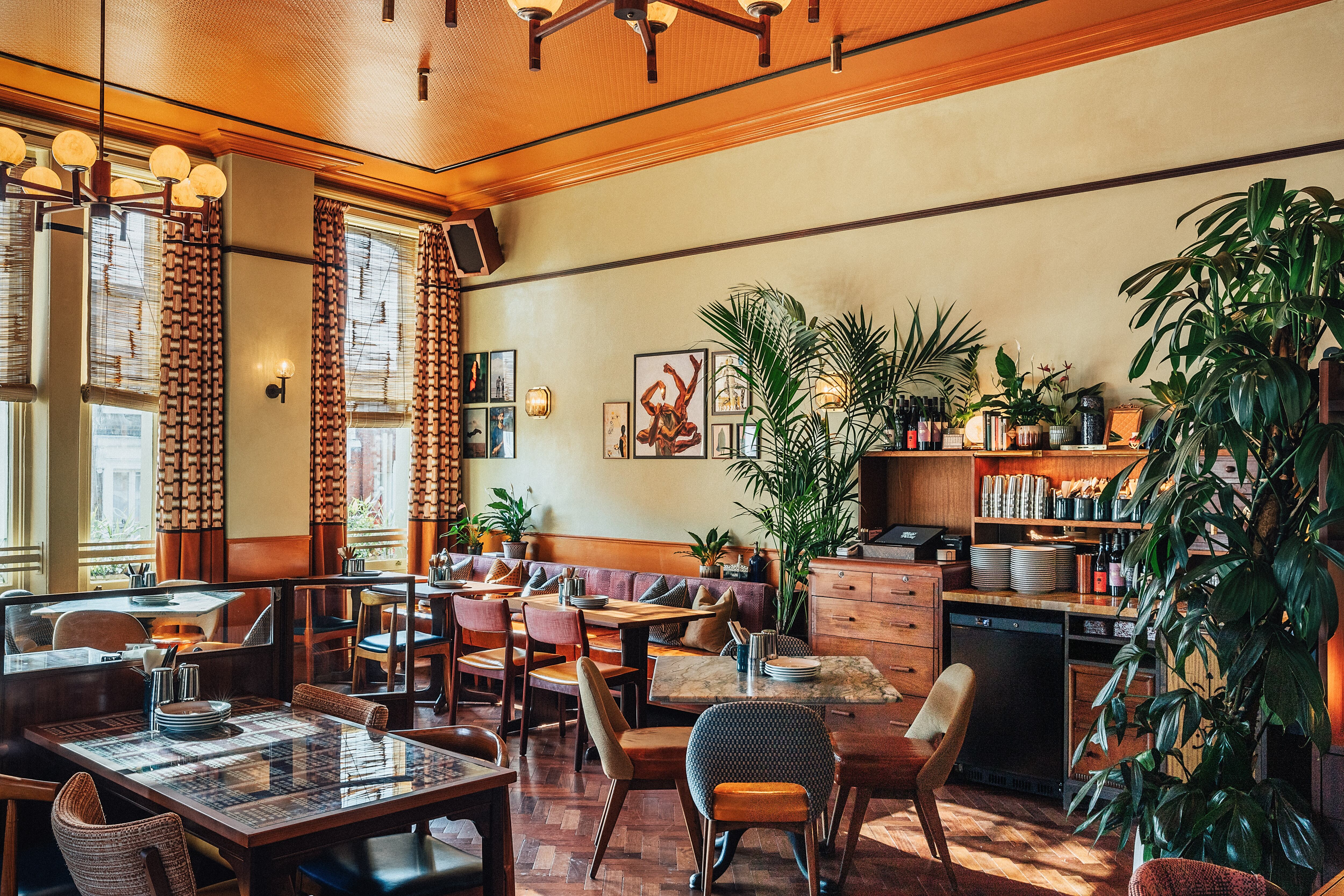
Permit Room
Founded: 2023
Number of sites: 4
Launched as a more relaxed, all-day, drinks led sibling to the Dishoom brand, Permit Room has enabled the Indian restaurant group to open smaller sites in cities that might not be able to accommodates its typically large restaurants. Permit Room’s menu is similar to that found at Dishoom and the brand’s styling and close attention to detail is also up to its trademark quality, but the overall feel of the venues is something a little more intimate and personal. Brighton was the location for the debut site, followed by openings in the university towns of Oxford and Cambridge. The latest Permit Room, which opened earlier this year in London’s Portobello marks a new first for the company in that it offers accommodation. Described as lodgings, the space comprises two ensuite bedrooms and a living for up to four people and can be booked for a minimum of two nights and a maximum of seven.
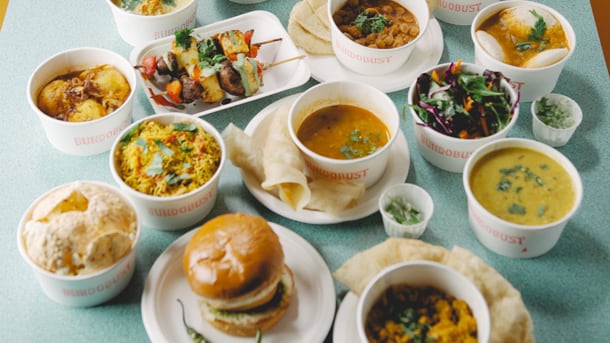
Bundobust
Founded: 2014
Number of sites: 4
Bundobust was founded by friends Mayur Patel and Marko Husak in Leeds and takes its name from an Anglo-Indian word that means binding or coming together. Known for its vegetarian Gujarati street food served in paperware in an informal often communal setting and its excellent craft beer, the group operates sites in Leeds and Liverpool as well as two in Manchester, including a Bundobust restaurant and brewery that has 16 keg and 2 cask lines of its own beers as well as guest drinks. The group at one point hit five sites with an opening of a site in Birmingham in the summer of 2023, but that closed a year later. Tom Byng, the founder of better burger brand Byron, is a director of the business.
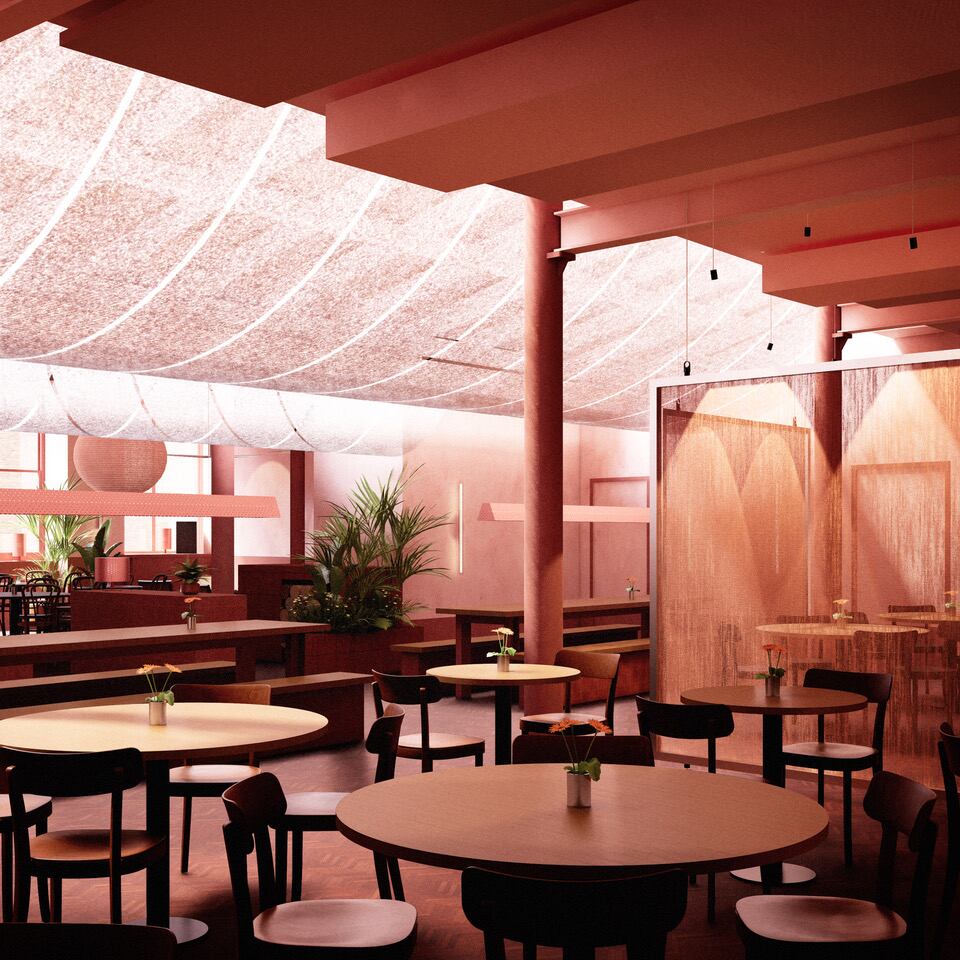
Kricket
Founded: 2013
Number of sites: 4
Modern Indian group Kricket was founded by chef Will Bowlby and Rik Campbell as a pop-up in a shipping container at Pop Brixton and launched a permanent restaurant in Soho the following year after receiving an initial injection of funding from White Rabbit Projects (WRP). Since then, it has expanded with a site in London’s White City, which has since closed, and restaurants in Canary Wharf and most recently Shoreditch. The Shoreditch site marks a new move for the duo, being an all-day offer and serving a breakfast menu for the first time. This approach will be replicated at their forthcoming site located in Neal’s Yard in Covent Garden’s Seven Dials area, which will have room for more than 130 diners across 4,000sq ft and which will launch next year. The duo also operate two-strong cocktail bar brand Soma, but that is ot counted in this instance.
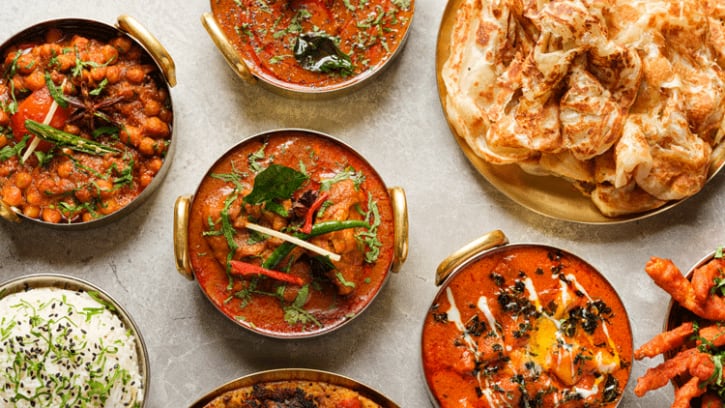
The Tamil Prince/The Tamil Crown/Tamila
Founded: 2021 (Tamila) / 2022 (The Tamil Prince) / 2023 (The Tamil Crown)
Number of sites: 4
When former Roti King executive chef Prince Durairaj and ex-JKS general manager Glen Leeson launched The Tamil Prince in London’s Islington it felt like a smart move; a bold and brilliant contemporary reworking of the Desi pub concept, which has been a fixture of British high streets since the 1960s. Its success was immediate, and within a year the pair established a second pub nearby, The Tamil Crown. Since then, though, Durairaj and Leeson have turned to the classic curry house concept with Tamila. Having originally established the brand back in 2021 as a kiosk-style venue, which they trialled the Hackney Bridge food hall in Hackney, the pair launched Tamila as a bricks and mortar concept last October in Clapham. Durairaj and Leeson describe the concept as their attempt to ‘redefine the curry house’ with a roti and curry-focused menu that takes cues from Durairaj’s South Indian heritage and features dishes from Tamil Nadu and across the subcontinent. So confident are the pair in their new brand that they’ve already opened a second Tamila site, this time in King’s Cross. And having proved the concept has legs in both the casual dining and street food space, expect to more from Tamila in the years to come.
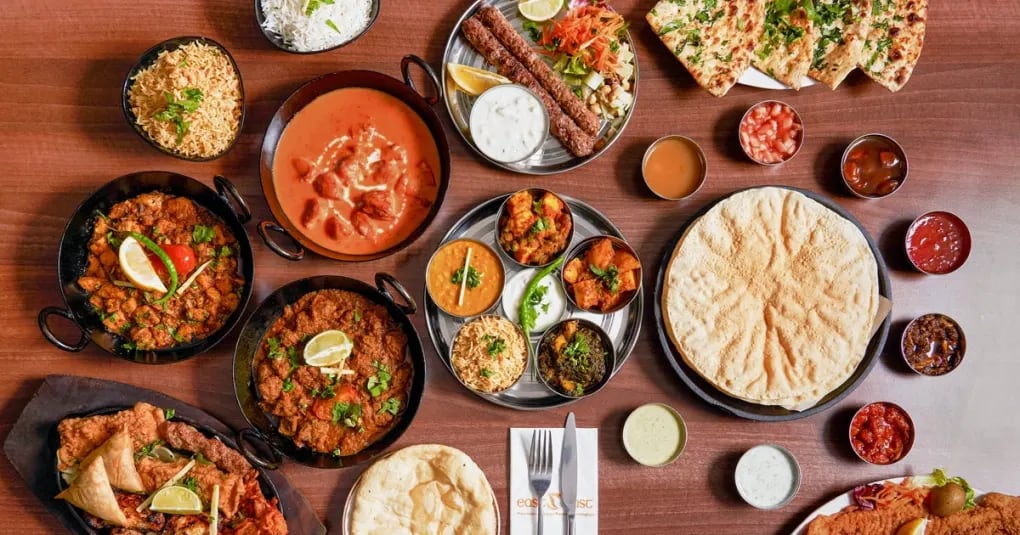
eastZeast
Founded: 2005
Number of sites: 4
Authentic Punjabi restaurant eastZeast was launched by founder Kabir Rayman, who followed in the footsteps of his family, who have been in the restaurant business since 1976. The first restaurant opened on Manchester’s Princess Street in 2005, followed by a second site that opened on Blackfriars Bridge of Deansgate in the city in 2008. Following that, the brand launched sites in Preston, Liverpool, Birmingham and a further restaurant in Manchester and grew to eight sites within the North West before the challenges surrounding Covid forced it to rationalise its estate. Today the company operates four restaurants, in Manchester, Preston and Liverpool and is currently seeking funding to expand the brand again and become a national player. The restaurant group is known for its authentic cooking, use of high-quality ingredients and sourcing policies, with whole lambs from Cheshire and Lancashire and whole chickens from Cumbria butchered on site.
Tamatanga
Founded: 2008
Number of sites: 4
With sites in Leicester, Leeds, Nottingham and Birmingham, Tamatanga offers a family friendly, more casual dining take on India food (think an Indian Turtle Bay). Alongside traditional Indian dishes such as thali, chaat, curries and biryanis, it serves a range of wraps and salad bowls, the latter of which include avocado, chickpea and paneer; lamb tikka; and chicken quinoa. The restaurant was founded in Nottingham in 2008 by Aman Kular.
Hoppers
Founded: 2015
Number of sites: 3
Led by creative director and co-founder Karan Gokani, Sri Lankan restaurant mini group Hoppers is inspired by country’s toddy shops and spice gardens and serves a menu of dosas, curries, biryanis and small snacks alongside the eponymous hopper. The brand is part of JKS Restaurant Group (see below) but is the only Indian/Sri Lankan brand in the group to have multiple sites in the UK, which is why it has a separate entry. The first Hoppers opened in Soho in 2015, followed by a second in Marylebone’s St Christopher’s Place in 2017. Hoppers King’s Cross, the largest of the three sites, opened in early 2020, inspired by the coastal journey from Colombo to Galle.
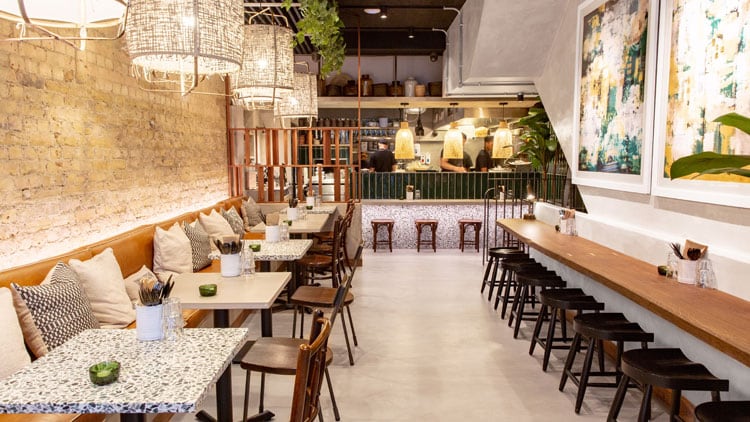
Kolamba
Founded: 2009
Number of sites: 2
Eroshan and Aushi Meewella opened their debut Sri Lankan restaurant in Soho in 2019 serving their modern take on home-cooking and celebrating the island’s vibrant cuisine. They followed it up in spring 2024 with Kolamba East, located on Spitalfields’ Blossom Street. This summer the pair will extend their reach in the capital with the launch of a Sri Lankan street food concept this summer. Named after a common Sri Lankan exclamation used to express surprise or greeting, ADOH! will be located on Covent Garden’s Maiden Lane and will take inspiration from the vibrant roadside eateries found across Sri Lanka.
Dastaan
Founded: 2017
Number of sites: 2
Helmed by chefs Nand Kishor and Sanjay Gour, Dastaan launched a second site in Leeds in 2022 following the success of the group’s original restaurant in the Surrey town of Epsom. The brand sits at the intersection of fine and casual dining offering top quality regional cuisine as befits a duo who have worked at some of the best restaurants in the capital (Kishor’s held senior roles at Trishna and Gymkhana while Gour, a pastry chef by trade, has a CV that includes a stint at Angela Hartnett’s Murano.

